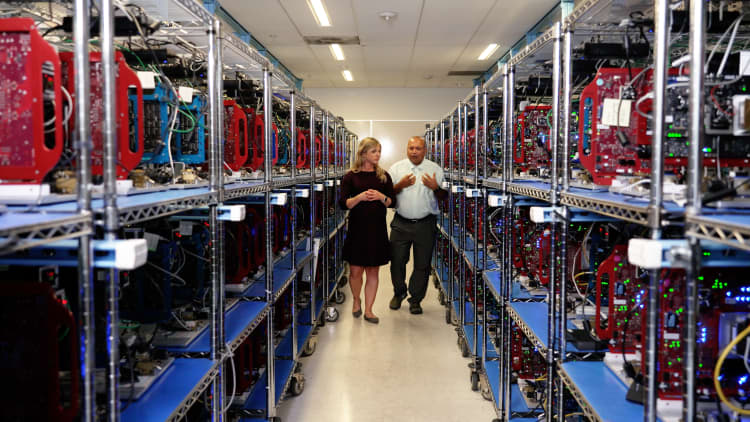Taiwan Semiconductor Manufacturing Company Chairman Mark Liu plans to retire in 2024, the company said in a statement Tuesday.
"Chairman Dr. Mark Liu has decided not to seek the nomination of TSMC board membership for the next term and will retire from the company after the 2024 annual shareholders meeting," said TSMC.
The board plans to have vice chairman and CEO C.C. Wei succeed Liu's role, subject to shareholders' approval.
Liu joined TSMC in 1993 and assumed the role of chairman after founder Morris Chang's retirement in June 2018.
TSMC is the top producer of the world's most advanced processors. The Taiwanese firm manufactures semiconductors for companies like Apple and Nvidia, often based on architecture from chip design firm Arm.
TSMC currently manufactures 3-nanometer chips and plans to start 2-nanometer mass production in 2025. "Nanometer" in semiconductors refers to the size of individual transistors on a chip. The smaller the size of the transistor, the more of them can be packed onto a single semiconductor. As such, smaller nanometer sizes typically yield more powerful and efficient chips.
In October, TSMC reported a third-quarter profit of 211 billion Taiwan dollars ($6.69 billion), beating analyst expectations.
TSMC in September approved an investment in Arm of up to $100 million as the British firm went public.


